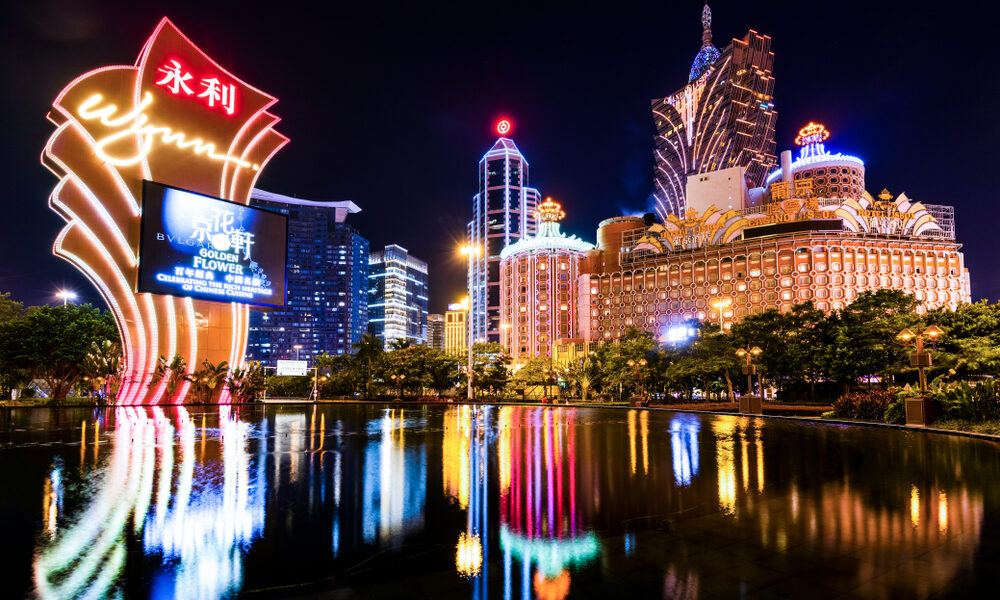In a recent article in the Macau Daily Times, Zeng Zhonglu, chairman of the Asia Pacific Association for Gambling Studies, advocated for more focus on gaming assets. Zing warned authorities and operators alike of the existing and impending competition. The reason Zeng feels the need to state the obvious is government policy. China and its surrogate, the government of Macau, have a policy of diversification from gaming and a focus on international tourism.
Thus, when Macau renegotiated the licenses of the existing casino operators, diversification was written into the agreements. In December 2022, Reuters wrote, “The operators are expected to focus on non-gaming activities in the new term, particularly as Beijing is keen for Macau to diversify away from gambling and attract foreign tourists.” Reuters quoted a statement from the government of Macau: “The development of Macau’s gaming and tourism industry will enter a new stage.”
It certainly is a new era in casino gaming; never have operators been as controlled and restricted in their investments. Over the 10-year term of the contracts, the casinos in Macau are required to invest $13.5 billion in non-gaming projects. Gaming investment is to be $1.2 billion during the same period. Those restrictions pose two problems. One, they limit the amount that can be spent on gaming assets to keep up with the competition. And two, those conditions will reduce corporate margins, as much of the investment will not have the same rate of return as the gaming investment.
The government of Macau takes the requirements very seriously. When Sam Hou Fai took office as the chief executive of Macau, one of his platforms was compliance with the contracts. He promised to keep a close eye on the casino operators to ensure they were properly investing in non-gaming assets, activities, and events.
Zeng’s point is well taken. It is not 2004 and the casinos in Macau do not operate in a competitive vacuum. The casinos compete for Chinese gamblers with the other casinos in the region, of which there are many. Casino gambling exists in Australia, Cambodia, Korea, Laos, Malaysia, Myanmar, New Zealand, the Philippines, Singapore, and Vietnam. Singapore’s resorts are equal to the best in the world. But not all of the competition is like that in Singapore. The casinos in Cambodia, Myanmar, and Laos are closer to China and attract the less affluent of the Chinese gamblers. Casinos in other jurisdictions, however, constantly upgrade in an attempt to outdo those in Macau and Singapore.
It is an intensely competitive environment, in part because most of the casinos in the region are competing for the same customers, the Chinese. There are other customers to be sure; Australians, Kiwis, Thai, Japanese, Koreans, Filipinos, Taiwanese, and Indians travel to gamble in other jurisdictions. But the nuts-and-bolts bread-and-butter customers in the Asian Pacific Rim are Chinese.
The current state of affairs is enough to raise a red flag in Macau. As bad as it might be, it will get worse. MGM Resorts International is busy building an $8 billion resort in Japan, set to open in 2030. It will be state of the art and a serious threat to both Macau and Singapore. Wynn Resorts is building a $4 billion resort in the United Arab Emirates. The Wynn resort is not in Asia, but it will also be state of the art and a major attraction for top-level gamblers in Asia, as well as the Middle East and Europe. It will decrease Macau’s ability to draw international travelers. Wynn Al Marjan is scheduled to open in 2027.
The developments in Japan and UAE would be enough to create somewhat of a competitive crisis for Macau. But that is not all. Thailand is in the initial stages of approving casino legislation. Thailand envisions a limited number of resorts. Like the casinos in Singapore, Korea, and Thailand, the primary target market will be foreign gamblers. Some wrinkles in the fabric have to be ironed out, but if the legislation is not overly restrictive, the major international gaming companies will be lined up, hoping for a license.
Casinos in Thailand will not happen next year; the best-case scenario is probably 2030. If that turns out to be the case, as many as five megaresorts could debut at the same time. The casinos in Macau would be nearing the end of their contracts. By 2030, the city will be abuzz with activities: dragon boat races, kite festivals, museums, art shows, sporting festivals, car races, NBA basketball games, and remodeled and refreshed local neighborhoods and shopping centers. Macau is becoming successful in attracting mass tourism. The trend is toward diversified spending, mass tours, and lower per-person spending on gambling. Macau is less successful in attracting foreign visitors.
That is not a model to compete with resorts in UAE, Japan, Thailand, and Singapore. Planned economies that ignore market trends, consumer preferences, and profitability are not always successful. Having said that, it is necessary to say Las Vegas Sands, Wynn Resorts, MGM Resorts, Melco, Galaxy Casino, and SJM Holdings remain optimistic and even enthusiastic about the future of Macau casinos. But that is in 2025. Ask them again in 2030.



